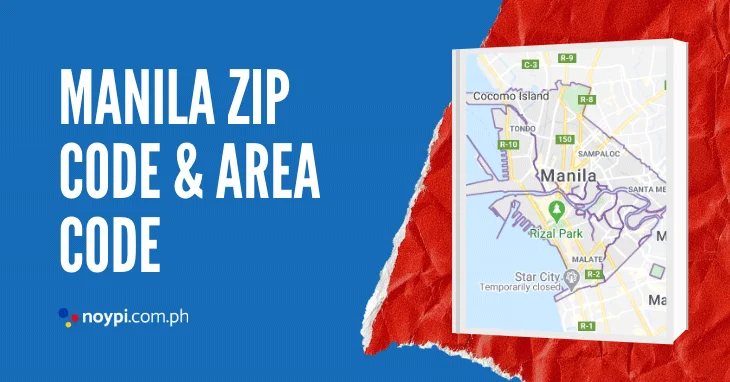| Location | Zip Code | Area Code |
| Binondo | 1006 | 2 |
| Intramuros | 1002 | 2 |
| Malate | 1004 | 2 |
| Manila CPO – Ermita | 1000 | 2 |
| Paco | 1007 | 2 |
| Pandacan | 1011 | 2 |
| Port Area (South) | 1018 | 2 |
| Quiapo | 1001 | 2 |
| Sampaloc East | 1008 | 2 |
| Sampaloc West | 1015 | 2 |
| San Andres Bukid | 1017 | 2 |
| San Miguel | 1005 | 2 |
| San Nicolas | 1010 | 2 |
| Sta. Cruz North | 1014 | 2 |
| Sta. Cruz South | 1003 | 2 |
| Sta. Mesa | 1016 | 2 |
| Sta. Ana | 1009 | 2 |
| Tondo North | 1013 | 2 |
| Tondo South | 1012 | 2 |
About Manila
The Official Capital of the Philippines, Manila, has its name derived from the phrase “may-nila” which means “where indigo is found,” in reference to the abundant supply of indigo-yielding plants in the area.
From June 24, 1571, Manila was instated by the Spanish conquistador Miguel Lopez de Legazpi. After their defeat in the Battle of Bangkusay, Intramuros, a fortified city was built. Many of the country’s firsts were found in Manila, from the light station in 1642 to a water system (1878), to the hotel (1889) to electricity (1895) and stock exchange (1927).
The National Museum of the Philippines, Intramuros, San Agustin Church, Chinatown, Manila Baywalk, Fort Santiago, Rizal Park, Quiapo Church, Divisoria Market, Malacañang Palace are among the top places to visit when in Manila.
Manila was the home to the entrepreneur behind Robinsons Malls and Cebu Pacific, John Gokongwei, owner of Philippine Long Distance Telephone Company, Manuel Pangilinan, founder of Mapua Institute of Technology, Tomas Mapua, Miss Universe 1973 Margarita Moran and the first Filipino Saint, Lorenzo Ruiz.
Many National Heroes were from Manila, such as Andres Bonifacio, the founder of Katipunan, Emilio Jacinto, a general of the Philippine Revolution, Antonio Luna, known as “The Fiery General” and Apolinario Mabini, the first prime minister of the country.
Official website: manila.gov.ph
